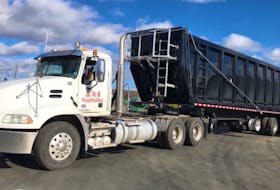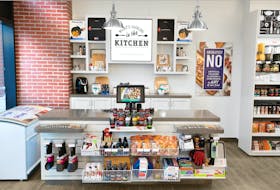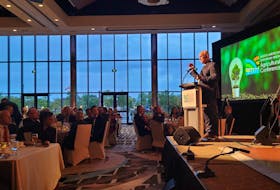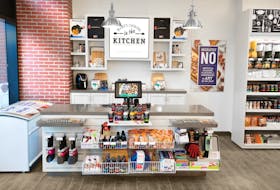If there is a fire in your home, or you have had an accident where somebody is severely injured you know to dial 9-1-1.
When faced with other serious issues, such as an inability to buy food, or pay bills, a need to find immediate shelter, or even programs to help when you feel isolated, you might not know where to turn. That’s when you should dial 2-1-1.
211 is a new helpline which connects callers with information and referrals after unpacking their unique situation and helping them navigate through the vast array of services that could assist.
United Way of P.E.I. chief executive officer Andrea MacDonald says the service is perfect for callers who don’t know where to turn, as its purpose is to connect with each caller and refer them to the right place, whether that be related to services for mental health, addictions, food assistance, transportation, housing or otherwise. The service’s database of information is so broad, it even includes details for local recreation programs and seasonal issues such as tax services.
“There is no wrong call for us. We’re a navigation and information service whose whole purpose is to get you to the right door, the right service, the right place,” she says. “We’re here to help make sure that happens.”
At the heart of it are the 211 Navigators — the people who answer incoming phone calls. These navigators are experts in this list of services and work with each caller to unpack their situation and use specialized systems that often find not just one, but a set of services for the individual on the line.
“Our navigators are well trained in speaking with and managing anyone who calls even if they’re in crisis. They listen, as questions, and work with them to find the right information, programs and services close to home,” says MacDonald.
Chief Bryan Larkin, President of the Canadian Association of Chiefs of Police, says he and his members know first-hand the importance of ensuring more people know about 211 as a front door to support.
“Our frontline officers respond to calls for service from the community every day, not related to crime. The stress and anxiety brought on by the pandemic, an inability to feed or house yourself or your family, substance abuse — those are examples of real emergencies for people, and when they don’t know where to turn, they often go to the number they know best,” says Larkin. “But we’re hoping increased access to 211, and a better understanding of the service will divert more of those calls to the helpline that can connect people to the support they need.”
These are trying times for everyone. Finding the right place to turn when you need any kind of help can feel overwhelming. If you don’t know where to turn, just dial 2-1-1.
The helpline is free, confidential and available 24 hours a day.
MacDonald says at the end of the day, sometimes all people are looking for is a caring voice on the other line to help them feel like they are heading in the right direction.
“People have a lot of questions about changes brought on by the COVID-19 pandemic,” she says. “We are happy to help with these general information calls and will always see if we have information within our database to which we can refer callers. Remember: help starts here.”
For more information on 211, other service numbers and crisis lines available to Prince Edward Island callers, visit pe.211.ca.









